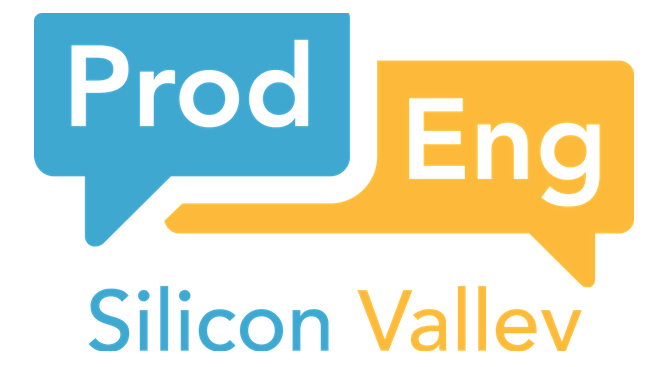“Most people don’t like to be convinced of anything. That actually goes counterculture to getting people to agree with you. That’s why we’re now fully vested and centered on social proof.”
Find out more about Elevano, it’s recruiting process, and the man who started it all.
Taken from the ‘Share Your Story‘ Podcast with Michael de Groot.
Q: Tell us a little about yourself.
A: I was actually born on the East Coast of the States in around the Washington D.C area. My parents were immigrants, the classic $100 to America story. I went to school on the East Coast. Graduated with technology degrees, Master’s in technology. My family was actually moving out West for my brother who also is my business partner, but he was gonna play tennis at a university out in California in Orange County, and my options were to take a shiny new job with Verizon, at a very nice entry level starting salary or turn that down for nothing.
Q: Why did you start your recruiting agency?
A: Came out here, got here and realized, “Well, now I got no job, living with my family, that’s nice. But I’ve got to find a job.” I found a job, dug into the engineering side.
Slowly, I realized that while I could do software development and the sort, it really wasn’t what was driving me. I realized I enjoyed talking to people and the meetings and the prep work a lot more.
I started to pivot into more of an analyst role, got into business intelligence, where I could get towards the business side of technology a little bit more, and then gravitated towards at one point running a BI practice, where I got a good taste for the sales process. That’s where I started thinking I could do this for myself.
I made that decision to go out on my own. Again, my brother is my business partner. So it’s a nice comforting factor to have him as a backing. Somewhere along the line early on we got into recruitment and it became my thing. That’s where we are at.
Q: What does BI stand for?
A: BI is business intelligence. Back in the day it was a little bit different than it is now, but obviously providing that basis to get reporting and analytics to business, KPIs, metrics, that sort of thing.

Q: How did you get into that? Is it just looking for a job or you were interested in doing that?
A: When I got my master’s degree, there was a concentration in the data space. Building data warehouses, which were fundamental towards this type of reporting. I had a lot of I guess educational training when I got out, I didn’t have the experience to do that so I became a software engineer.
I did see a little bit of an opportunity to start helping in those areas of the company I was working for. My manager was really fantastic, a South African guy. And he gave me a crack at touching that side. It just resonated more and I just gravitated towards it.
Q: What inspired you to go into the kind of people side of the work?
A: Initially Elevano started as a business intelligence consulting firm. That was my expertise, and that’s what we set off to do. Along the way we had a customer who basically said, “Well, all right. The project is done. We just need someone to help us with this.” We knew very little about recruitment honestly. I mean, I was recruited extensively all throughout my career. I knew it from that perspective. I’d never actually done it.
We were a small business at that point, and we said, “Sure, why not? We could help you. We’ll figure it out obviously.” We kind of said yes, and that committed us towards wanting to succeed. If we said yes we knew we were gonna be all in to ensure as much quality and we’d figure out what we had to to deliver essentially.
Q: How did you approach recruiting people?
A: Basically I approached it as I was an internal hiring manager. How I had to gravitate towards recruitment was, “Okay. I’m going to hire this person for me. For my team, for the BI consulting, What would I be looking for? How would I actually go about finding this person to expand my own team?” If I’m comfortable enough that he or she is a good fit for my team, then I feel comfortable sending that candidate to the client to interview.
We just took ownership based on if it’s a good hire for us, especially knowing the data space. That’s kind of how we operated initially. That’s actually transcended the business. Part of our fabric is, we really take ownership of the roles in terms of trying to put ourselves in a hiring manager’s position a lot of times.

Q: What exactly is Elevano?
A: We are a recruitment agency. We don’t operate much like most agencies I suppose. There are some commonalities, there are some differences. I’m an engineer who comes from the perspective of, I know what I liked from being recruited and I know what I didn’t like.
We just set about going, how would we want recruiting done? We approached it from the standpoint of that. And then obviously coming from a consulting background, we really liked to dig in and understand. In essence that’s part of who we are, and that’s kind of into the training that we provide people when we bring them onboard, is to help them understand those gaps, and the mindset that we expect here to resonate with, being true to our own history.
Q: Your route for getting people onboard, getting candidates, and then getting those candidates in front of recruiters. What is the process in terms of how much technology is involved with that?
A: I like leveraging technology. We are not a platform. We had thought about, we actually had thought about many times, converting the service to platform. We might still do that down the road. Part of that is being an engineer, being somebody who is good at dissecting problems and try to reverse engineer solutions. I do see the gap pretty soundly. I have used my engineering background to go find tools and technologies, and process tweaks that leverage that.
My goal is to get my hands on any tool that’s out there before another recruiting company can think about it, see it, because obviously I’m digging into a lot of startups and technologies that are emerging, that are still risky but I can evaluate because of my background. That does give us an advantage. I do believe that’s a distinct advantage.
Q: How did you work on getting “social proof” for your business?
A: We’ve made a big push to ask our candidates, “If we’ve done a good job, write reviews.” In four months I think we amassed close to a hundred reviews written for us. Not all of those reviews are placements. Some of those are people that were so happy in the way that we approached them and our unique philosophies of recruitment, that they were willing to write a couple of nice words about us.
We focused on Google, Facebook, Trustpilot, but I’d say the majority is around Google. The reason we centered on Google is you have to have a user profile, it ties back to a person. For me, the social proof and transparency is of imminent importance to establish that good practices can be done. Again, what I really like about our candidates is, we sometimes have one meaningful conversation, and that person is willing to write us a review.

Q: How would you convince someone that they should be coming with you rather than go to some platform, LinkedIn, Indeed or somewhere else?
A: That’s where our strategy has shifted. We’ve spent a lot of time in the past trying to convince people. I’ve done a lot of reading in this area and I realized one thing, most people don’t like to be convinced of anything. That actually goes counterculture to actually getting people to agree with you. That’s why we’ve now fully are vested and centered on social proof, so the word of mouth and others.
Our view is, instead of trying to go out and try to convince people on an individual basis, we wanna have the social proof speak for our quality of work. A place with five out of five with 1,000 reviews, you are like, “Okay, why wouldn’t I go to that place? As long as it’s authentic and trusted reviews. Why wouldn’t you do that?”
Q: How do you see the future for recruitment, and how do you see the future for you as an organization?
A: I maintain that recruiting is just a marketing activity as it would be in any sales organization. You need lead generation, candidate generation. I think marketing and branding will ultimately define people who can help generate passive inward burn applications versus you constantly going out and doing the solicitation. I actually think at some point that most HR, internal HR teams, will actually be made up of mostly content and marketing people. There’ll be fewer resources needed just to handle the inbound and outreach and nurturing of candidate pools. I think a lot of that will shift because the content, and the platforms will kill off the transactional need for some of the basic recruitment activities.
I view whatever we’ve done, whatever we’ve figured out as pretty valuable, because I don’t hear many other agencies replicating what we’ve done. I actually think we will probably spin off a second company that’s an actual marketing company that helps recruitment companies, whether internal or external, do what we’ve done.
I think my recruitment company will continue, it will be a strong brand, and I think we are gonna take our knowhow and help actual brands get to the numbers we’ve gotten. I think there are so many different techniques that aren’t even remotely being used. I think there is gonna be a big convergence, and I think the platforms, AI will come for a lot of the recruitment industry and eliminate some of that transactional.
The post How Elevano Puts the ‘Tech’ in Technical Recruiting appeared first on Elevano.
source
https://www.elevano.com/how-elevano-puts-the-tech%e2%80%8b-in-technical-recruiting/
 Who:
Who:


 Who:
Who:













